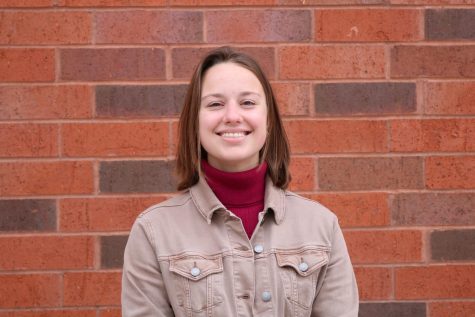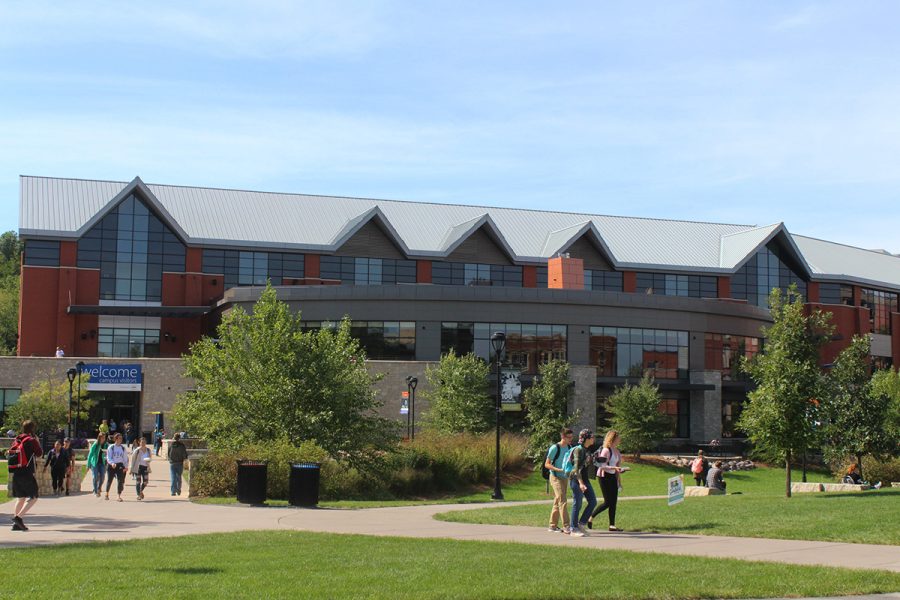Policy requires students to disclose felony convictions and expulsions for study abroad, away and university housing
A two-question survey will be included in the applications for studying abroad, study away and university housing
Photo by Kar Wei Cheng
A once in a lifetime opportunity was cut short for many students last year because of COVID-19.
A new UW System policy will require students interested in studying abroad or in university housing to disclose past felony convictions and suspensions or expulsions from post-secondary institutions.
The policy, known as Policy 136 or “Required Disclosures for Participation in Certain UW System Services and Programs,” was passed by the UW System Board of Regents in November 2017. The policy is to be implemented on UW campuses this fall.
“The policy is intended to balance two of the UW System’s main objectives,” a UW System spokesperson said in an email. “The first objective is to provide broad access to university programs and services. The second objective is to maintain a safe environment for all students participating in those services and programs.”
In accordance with the policy, students who apply to study abroad, study away or live in university housing will be presented with a two-question survey. Study away refers to an overnight trip within the United States that is funded by the university.
The first question asks the student whether he or she has been convicted of any felonies as an adult. The second question asks if the student has ever been suspended, dismissed or expelled from any previous colleges or universities for non-academic reasons.
If a student answers “yes” to either, he or she must provide the institution with more details regarding the event. The application will then undergo a review process by the institution to decide whether the student is permitted to participate in the program or service.
“That can include speaking with the student, looking for information from that prior institution or from law enforcement-related information,” Joe Abhold, the UW-Eau Claire dean of students, said. “It’s not what you would consider a full criminal background check, but it’s gathering information to try to understand more about the nature of that situation.”
Information — such as when the event took place, under what circumstances, whether it was a one-time event or series of events and whether there was violence involved — could be factors taken into consideration in the decision-making process.
After review, an institution may deny a student’s request to participate in a program or service. A student may be denied access if their conviction is relevant to the event in which they wish to participate or if they would pose “an unreasonable risk” to the property, safety or welfare of individuals.
If denied participation in a program or service, a student can appeal the university’s decision. In addition, a rejection from one program or service is not a blanket rejection from all programs and services, Abhold said. Details from each conviction or dismissal will be reviewed alongside the details of the program or service the student seeks to participate in.
“It’s going to be a constellation of factors being judged for every situation,” Abhold said.
Abhold said that if a student previously convicted of a felony or separated from a post-secondary institution were to lie on the survey, the university isn’t required under the policy to do further investigating to corroborate the information. However, if the university discovers that a student provided false information, there would be consequences distinct to each situation.
Though the policy is intended to preserve safety of students and educational experiences, Abhold said there has been concern that having students take the survey would dissuade some people from pursuing higher education.
“My goal would be to balance allowing people to have these educational experiences that we think are really important against trying to make some judgment about how the safety and wellbeing of our other students and campus activities might potentially be impacted,” Abhold said.
Student Body President Branden Yates said he understood why the UW System wanted to have the information, but he hopes that the survey doesn’t take away the opportunity for students to have high-impact practices.
“I’m happy that at least in the policy that if you do say ‘yes’ to a felony — that you’ve had a felony — and you want to study abroad it doesn’t automatically mean you can’t study abroad,” Yates said. “It means it goes through a revision process and you have an opportunity to explain more about that.”
The survey will be on the housing application for the upcoming year, Abhold said. There is a goal to have it on the study abroad and study away applications by the end of the semester.
Houterman can be contacted at [email protected].
Neupert can be contacted at [email protected].

Neupert is a fourth-year journalism student at UW-Eau Claire. She is the executive producer of Engage Eau Claire on Blugold Radio Sunday. In her spare time, Neupert's working on becoming a crossword puzzle expert.











